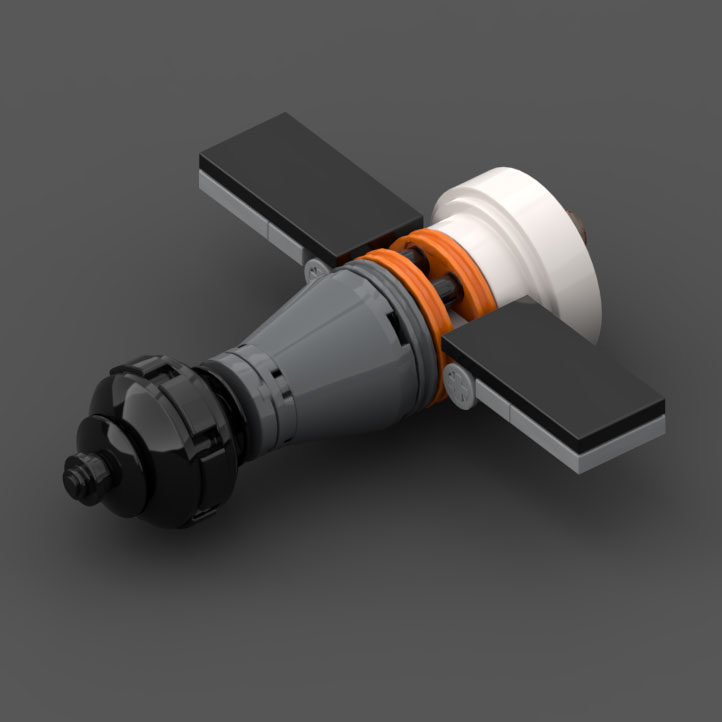
LEGO Designer:
Dan Fallon (phreaddee)
Designed:
October 2018
Categories:
Manned Spaceflight, All, Payloads, Space Agency - Roscosmos
Launch Vehicle Details
Stages:
Length:
Diameter:
Mass at Launch:
Low Earth Orbit Capacity:
Total Thrust:
Apogee:
Class:
Soyuz (Russian: Сою́з, IPA: [sɐˈjus], lit. ‘Union’) is a series of spacecraft designed for the Soviet space program by the Korolev Design Bureau (now RKK Energia) in the 1960s that remains in service today, having made more than 140 flights. The Soyuz succeeded the Voskhod spacecraft and was originally built as part of the Soviet crewed lunar programs. The Soyuz spacecraft is launched on a Soyuz rocket, the most reliable launch vehicle in the world to date. The Soyuz rocket design is based on the Vostok launcher, which in turn was based on the 8K74 or R-7A Semyorka, a Soviet intercontinental ballistic missile. All Soyuz spacecraft are launched from the Baikonur Cosmodrome in Kazakhstan. Soyuz has served as the only means for crewed space flights in the world since the retirement of the US Space Shuttle in 2011 and is heavily used in the International Space Station program.
~wikipedia
The Progress (Russian: Прогресс) is a Russian expendable cargo spacecraft. Its purpose is to deliver supplies needed to sustain human presence in orbit. While it does not carry a crew it can be boarded by astronauts when docked with a space station, hence it being classified as manned by its manufacturer.Progress is derived from the crewed Soyuz spacecraft and launches on the same vehicle, a Soyuz rocket.
Progress has supported space stations as early as Salyut 6 and as recently as the International Space Station. Each year there are between three and four Progress flights to the ISS. A Progress remains docked until shortly before being replaced with a new one or a Soyuz (which will use the same docking port). Then it is filled with waste, disconnected, and de-orbited, at which point it burns up in the atmosphere. Due to the variation in Progress vehicles flown to the ISS, NASA uses its own nomenclature where “ISS 1P” means the first Progress spacecraft to ISS.
Progress was developed because of the need for a constant source of supplies to make long duration space missions possible. It was determined that cosmonauts needed an inflow of consumables (food, water, air, etc.), plus there was a need for maintenance items and scientific payloads that necessitated a dedicated cargo carrier. Such payloads were impractical to launch with passengers in the restricted space of a Soyuz. As of 4 January 2020 there have been 165 Progress flights with three failures. All three failures have occurred since 2011.
Downloads
Part count: 41 bricks, 22 lots.
| Unit | width | length | height |
|---|---|---|---|
| Studs | 11.0 | 12.4 | 3.8 |
| Inches | 3.5 | 3.9 | 1.2 |
| Centimetres | 8.8 | 9.9 | 3.0 |
No external URL provided.
Launch History information from space.skyrocket.de
Launch History information from space.skyrocket.de
Related Posts
None found

